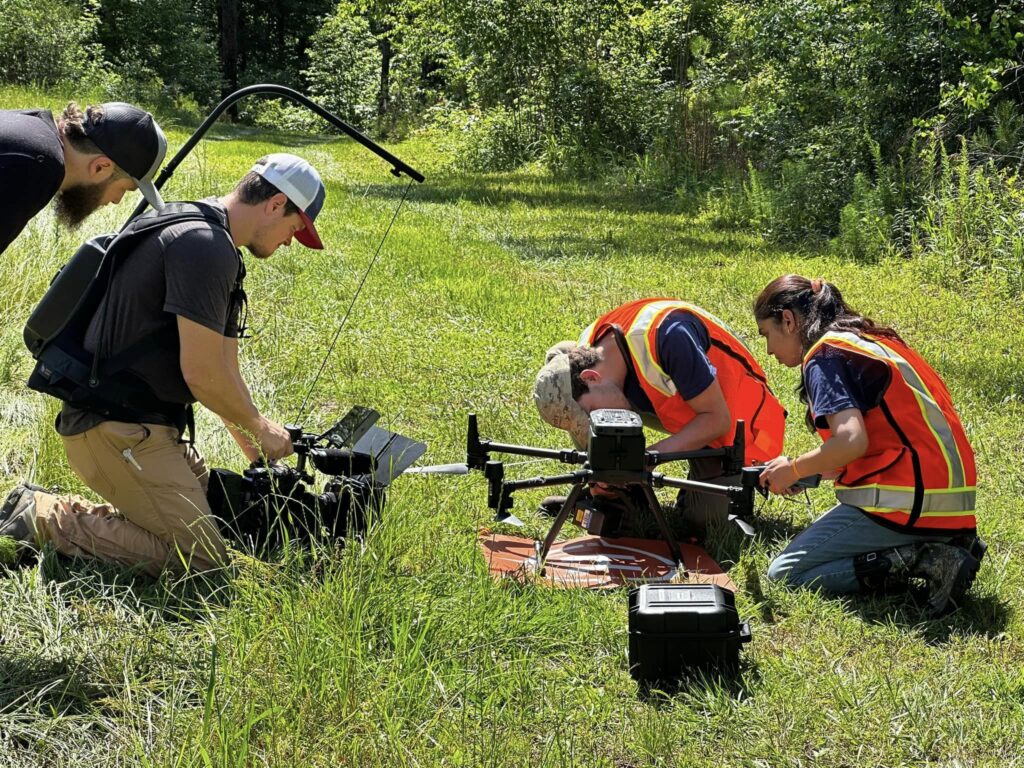A team of Auburn University researchers was front and center on an international stage this past June.
Attendees at the International Union of Forest Research Organizations (IUFRO) World Congress in Sweden this summer learned how faculty in Auburn’s College of Forestry, Wildlife and Environment (CFWE) are attacking the problem of brown spot needle blight, a disease running rampant in the southeast U.S. with the potential to impact forestry markets around the world.

A film crew shoots footage of graduate and undergraduate students using a drone to map progression of disease.
The research was highlighted in a video produced for the world congress, because despite the escalating concern over insect pests and fungal diseases, which can have devastating impacts on the forest industry, solutions remain elusive.
The college’s aim is to assist forest product manufacturers, landowners and government entities in keeping trees healthy by sharing science-based findings and solutions. The impact of this research is immense, as the forestry industry contributes $34 billion to Alabama’s economy. In an interview for the video, Kris Bradley, a registered forester and land manager, stressed how vital this project is to the state and the Southeast.
“This pathogen has a potential to cripple our forest industry,” he said. “Just in my little slice of the world, thousands of acres I manage are either dead or dying.”
Several CFWE faculty members are currently working on the project, which was funded by a $2.1 million grant from the U.S. Forest Service. Lori Eckhardt, a professor of forest health, is the primary investigator leading the research. She’s working closely with colleagues Janna Willoughby, an assistant professor of conservation genetics who is using genome sequencing to study the fungal pathogen responsible for the disease, and Lana Narine, an assistant professor of remote sensing and modeling who is using drone-based imagery and LIDAR to assess forest health and disease spread.
(Written by Kelley Young)










